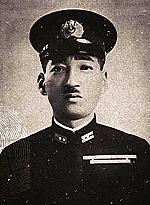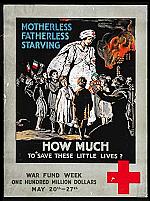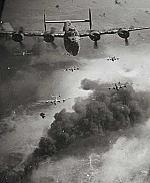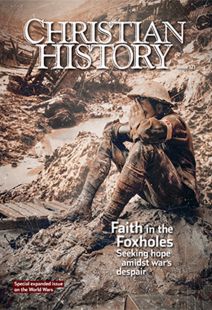The problems of peace and the problems of war
Preaching on the problems of peace
If only we could hope that war would solve the problems it has set out to solve, that would redeem, in part at least, our estimation of our era, but war never does that. When this conflict is over and its immeasurable sacrifices have been poured out, Hitler, to be sure, will be gone, but the basic problems that confronted us before, even the fear of totalitarian dictatorship, will confront us still, and endless new problems as well that the war itself has caused.
—“A Great Time to Be Alive,” by Baptist pastor Harry Emerson Fosdick (1878–1969), preached at Riverside Church, New York, and appearing in the book A Great Time to be Alive: Sermons on Christianity in Wartime (1944)
Preaching on the problems of war
These are indeed troublous times. We must not deny it, nor ignore it, nor miss, as the world so strangely does, the signs of God’s chastening hand. Missionaries in places are interned or impeded, communications are poorer and more perilous, reinforcements must needs be smaller, and many who would have been our volunteers have heard the sterner call of war. Some will never return to take up their purposed work, while others, we hope, will gain help from the experience of earthly chivalry. Many of our women have heard the call of suffering, too loud to be ignored.
We cannot forget that Europe, the great and age-long trustee of the Gospel, has become also Europe the great stumbling-block or scandal of it. What must the nations say and think of Christendom — Christian people tearing out each other’s vitals, the Christian spirit and the Church which embodies it wholly unable to forbid, or to stay, or even to mitigate the strife, force worshipped and triumphant? and, above all, a spirit of hatred and even a glorification of that spirit … Christian ministers uttering words of deadly rancor.—“The World at the Cross-Roads,” by Edward Talbot (1844–1934), Anglican bishop of Winchester, in the book Christ and the World at War: Sermons Preached in Wartime (1917)
A WWI sermon on the nature of God
I want that each one of us shall see that God has larger meanings in life than we are now able to read, that god has larger answers to our prayers than we are able to anticipate, that god has a thousand ways of fulfilling His promise in human lives that trust him; that so, forewarned by this knowledge of god’s wondrous greatness and transcendence, we may be forearmed against the perils of disappointment, fore-armed against that disheartening of soul which makes our hearts the ground, the fruitful ground, for the most noxious seed the devil can ever sow there.— “But If Not….” by J. Stuart Holden (1874–1934), vicar of St. Paul’s in London, preached in 1914 shortly before England entered World War I
A WWII sermon on the nature of man
When God made us so that we could love and help one another, he exposed his family to the possibility that they would hate and harm one another. necessarily. the one goes with the other. and sin came in, with its long entail of sorrow and sufering, and we can be hurt at any time by the folly, carelessness, or crime of another. but would you rather live in a world in which that couldn’t happen? Do you wish God had so made us that we could never influence each othe, never be friends, never guide, comfort, or help each other . . . never love? —“What if Calamity Comes?” by Methodist pastor W. E. Sangster (1900–1960), preached at Methodist Central Hall during World War II
This article is from Christian History magazine #121 Faith in the Foxholes. Read it in context here!
By Harry Emerson Fosdick; Edward Talbot
[Christian History originally published this article in Christian History Issue #121 in 2017]
Next articles
Mitsuo Fuchida: from Pearl Harbor attacker to Christian evangelist
What sparked Fuchida’s interest in Christianity?
Matt ForsterSpreading light in a dark world
The world wars served as a pivotal time for Christian relief efforts
Jared S. Burkholder






